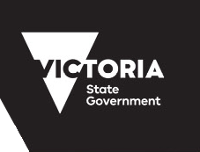Our community and visitors interact with the region for many reasons. During engagement to inform the RCS renewal, participants identified the important attributes that help shape what we want north east Victoria to retain and look like in the future. Identifying what is considered important can change how we invest in and manage natural resources. These include:
- Traditional Owners’/First Nations Peoples’ right to self-determination and inherent obligations to continually speak for and look after the Country of their ancestors and for current and future generations.
- Natural and healthy ecosystems. This includes alpine areas, free flowing rivers, billabongs and wetlands, and native flora and fauna.
- Strong sense of community connection, belonging, volunteerism and stewardship of natural resources.
- Breathtaking scenery and a diversity of landscapes that includes rolling hills and valleys, wild rivers, majestic river red gums, Yellow box forests, old paddock trees, farmscapes and snow-capped mountains.
- Water availability for recreation, environment, social, cultural and economic purposes and recognition of the water provided to downstream water users in the Murray Darling Basin.
- Economic diversity and growth for towns, productive agriculture and industry, ethical development and employment for all, economic independence and employment for Traditional Owners/First Nations Peoples.
- Rural lifestyle close to towns and major centres and services, offering flexibility to commute to work in nearby towns or work from home. This provides close contact with nature and connections to a small community.
- Recreation opportunities including nature-based adventure and relaxation, discovering towns, restaurants, wineries and breweries, local produce and food; local festivals and events.
- Reliable and moderate climate that has distinct seasons and provides a long growing season.
*Please note that this section and the process of identifying important values and attributes of natural resources is the worldview of government processes and institutional arrangements that govern the preparation of management strategies such as the RCS. It is a different world view for Traditional Owners/First Nations Peoples. For Traditional Owners/First Nations Peoples, everything is important and the Country is wholly connected to people and place. Integrating cultural values, objectives and practices into regional strategies and plans will require an intergenerational timeframe to accommodate healing and strengthening of Country and people.


